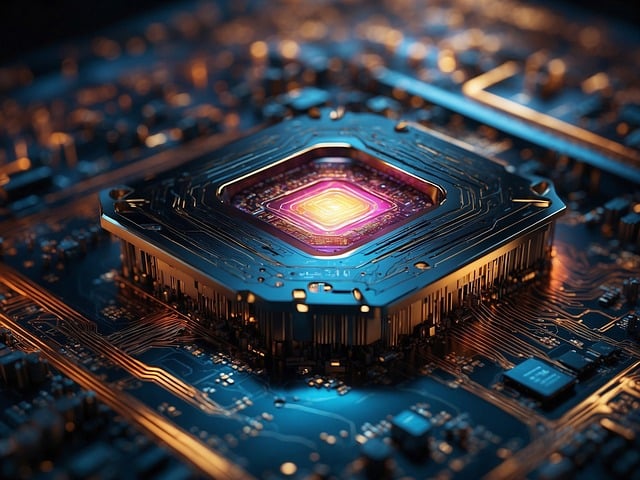Many have marveled at the wonders of quantum entanglement, a phenomenon defying traditional laws of physics. Recently, a team of Chinese scientists has harnessed this mystical connection to power a groundbreaking quantum engine. Through their innovative research, they have unlocked the potential for unparalleled energy efficiency, and paving the way for a quantum-powered future. Let’s probe further into the world of quantum engines and explore how entanglement is shaping the next frontier of technological advancement.
Key Takeaways:
- Quantum entanglement as a fuel: Chinese researchers have achieved a groundbreaking milestone by demonstrating quantum entanglement’s potential to serve as a type of “fuel” for quantum engines, which could revolutionize energy efficiency in future technologies.
- Enhanced mechanical efficiency: The study showcased that increased levels of ion entanglement led to enhanced mechanical efficiency in quantum engines, highlighting the role of entanglement as a significant factor in improving energy conversion processes.
- Potential for micro-energy devices: The research opens up new possibilities for the development of micro-energy devices like quantum motors and batteries, suggesting that the entanglement properties of working materials can significantly enhance the extractable energy, particularly for powering large-scale quantum computers and circuits.
The Concept of Entanglement
Quantum Mechanics and Entanglement
While quantum mechanics forms the basis of understanding the behavior of particles at the smallest scales, the concept of entanglement takes this understanding to a whole new level. Entanglement refers to the phenomenon where two particles remain connected regardless of distance between them, seemingly communicating instantaneously, and quantum physicists have been fascinated by its implications for decades.
Historical Background of Entanglement Research
For centuries, scientists have investigated into the mysteries of entanglement. An vital figure in the study of entanglement is physicist Albert Einstein, who famously called it ‘spooky action at a distance’. Over the years, experiments have consistently shown the existence and validity of this phenomenon, capturing the interest of researchers worldwide.
An intriguing aspect of entanglement is its defiance of our classical intuitions about physical interactions, meaning that we normally think that an event somewhere cannot affect something instantly in a far away place. This property has led scientists to explore its potential applications in various fields, from quantum computing to now, as seen in the groundbreaking work of Chinese researchers harnessing entanglement as a fuel for quantum engines.
Chinese Researchers’ Breakthrough
Novel Approach to Harnessing Entanglement
Even in quantum physics, Chinese researchers are pushing boundaries with their groundbreaking work on utilizing entanglement as a source of fuel for quantum engines. Their innovative approach showcases the potential for quantum technologies to revolutionize energy efficiency.
One of the highlights of their study is the first experimental realization of a quantum engine with entangled characteristics, demonstrating that entanglement can serve as a type of ‘fuel’ to enhance the output efficiency of quantum engines, as highlighted by Zhou Fei and his team.
Experimental Design and Methodology
Experimental verification plays a crucial role in advancing scientific knowledge, and the Chinese researchers took a meticulous approach in designing and executing their study. By utilizing ultra-cold 40Ca+ ions held in an ion trap as the working material for the quantum engine, they were able to demonstrate the transformative potential of entanglement in enhancing mechanical efficiency.
Researchers conducted over 10,000 experiments which indicated that increased levels of ion entanglement correlated with improved mechanical efficiency, showcasing the intriguing role that quantum entanglement plays as a ‘fuel’ for quantum engines.
Unlocking Potential for Breakthrough Energy Efficiency
To truly grasp the revolutionary potential of harnessing quantum entanglement as a source of fuel for quantum engines, we need to investigate into the theoretical foundations underpinning this groundbreaking achievement.
Theoretical Foundations of Entanglement-Based Energy
For centuries, scientists have grappled with the enigmatic nature of quantum entanglement, a phenomenon that seemingly defies classical understanding. Chinese researchers have now demonstrated that entanglement can serve as a type of ‘fuel’ for quantum engines, enabling them to achieve energy conversion efficiencies exceeding 25 percent. By utilizing ultra-cold 40Ca+ ions in an ion trap as the working material, researchers have unlocked the remarkable potential of entangled states to enhance the output efficiency of quantum engines.
Potential Applications in Quantum Engines
An exciting horizon unfolds as we consider the myriad applications of entanglement-based energy in quantum engines. While quantum batteries may not store as much energy as traditional alternatives, their capacity to power extensive quantum computers and circuits heralds a paradigm shift in energy efficiency. The challenge ahead lies in expanding the variety of materials while preserving the quality of entanglement, paving the way for even higher output and efficiency in quantum engines.
Ion Entanglement Boosts Mechanical Efficiency
Ion Traps and Entanglement Generation
Entanglement plays a crucial role in boosting the mechanical efficiency of quantum engines. In the study conducted by Chinese researchers, ultra-cold 40Ca+ ions were utilized in an ion trap as the working material for the quantum engine. By leveraging the entangled states of two spinning ions, researchers were able to achieve enhanced mechanical efficiency.
Enhancing Mechanical Efficiency through Entanglement
Boosts in mechanical efficiency were observed as levels of ion entanglement increased. The study demonstrated that entanglement acts as a “fuel” for quantum engines, leading to improved performance. The research team conducted over 10,000 experiments, showing a correlation between increased ion entanglement and enhanced mechanical efficiency.
Enhancing mechanical efficiency through entanglement opens up new possibilities in the development of micro-energy devices such as quantum motors and batteries. By exploring the entanglement properties of the working material, researchers can increase the extractable energy capacity of quantum engines, paving the way for advancements in quantum technology.
Overcoming Challenges in Entanglement-Based Energy
Despite the promising results achieved by Chinese researchers in harnessing quantum entanglement to fuel quantum engines, there are still significant challenges to overcome in utilizing entanglement as a source of fuel for energy. One major obstacle is the phenomenon of decoherence, where the delicate entangled state of particles interacting with their environment leads to the loss of entanglement.
Decoherence and Its Mitigation Strategies
One key challenge in maintaining entanglement for energy applications is mitigating the effects of decoherence. To address this issue, researchers are exploring strategies such as error correction codes, environmental shielding, and improved control techniques to preserve the entangled states of particles over longer periods of time.
Scalability and Control of Entanglement Systems
Strategies for achieving scalability and precise control of entanglement systems are imperative for the practical implementation of quantum engines using entanglement as a fuel source. Researchers are working on developing methods to increase the number of entangled particles while maintaining the quality of entanglement, which is crucial for achieving higher energy output and efficiency.
The ability to scale up entanglement systems and maintain control over the entangled states of particles will be crucial for realizing the full potential of quantum engines fueled by quantum entanglement. By overcoming challenges related to decoherence and scalability, researchers can unlock the true power of entanglement as a fuel for next-generation energy technologies.
Implications and Future Directions
Quantum Engines and the Future of Energy Production
Now, with the successful demonstration of a quantum engine utilizing entangled states as a source of fuel, the future of energy production stands on the brink of a revolutionary transformation. Quantum engines, which can potentially achieve energy conversion efficiencies exceeding 25 percent, hold the key to powering large-scale quantum technologies such as computers and circuits.
Potential Impact on Global Energy Landscape
Future developments in quantum engines, driven by the utilization of entanglement as a form of ‘fuel,’ could have a profound impact on the global energy landscape. While quantum batteries may not store as much energy as conventional batteries, their true advantage lies in their capacity to energize extensive quantum technologies. This could pave the way for more energy-efficient devices and systems, leading to a significant reduction in energy consumption and environmental impact.
Another important aspect to consider is the potential for quantum engines to enhance the maximum extractable energy through the entanglement properties of the working material. By increasing the variety of materials while preserving the quality of entanglement, researchers can strive for higher energy output and efficiency, further revolutionizing the way we produce and utilize energy in the future.
Final Words
Following this groundbreaking achievement by Chinese researchers in utilizing quantum entanglement as a fuel for quantum engines, the future of energy efficiency and quantum technologies appears to be on an exciting trajectory. This innovative approach has the potential to revolutionize the way we generate and utilize energy, offering possibilities that were once considered purely theoretical. The demonstration of entanglement as a source of fuel not only showcases the incredible progress in quantum research but also opens new doors for the development of micro-energy devices and advanced quantum technologies.
As we continue to research deeper into the realms of quantum mechanics and harness the power of entanglement, the possibilities seem endless. The implications of this research extend far beyond traditional energy systems, hinting at a future where quantum engines power complex systems like quantum computers and circuits. With the promise of increased energy efficiency and new insights into the mysterious nature of quantum mechanics, the journey towards unlocking the full potential of entanglement as a fuel source for quantum engines is both awe-inspiring and full of possibilities.
If you enjoyed this article then please bookmark our main news aggregation page which updates many times per day to keep you updated on a variety of techie subjects and also some other fun topics.










